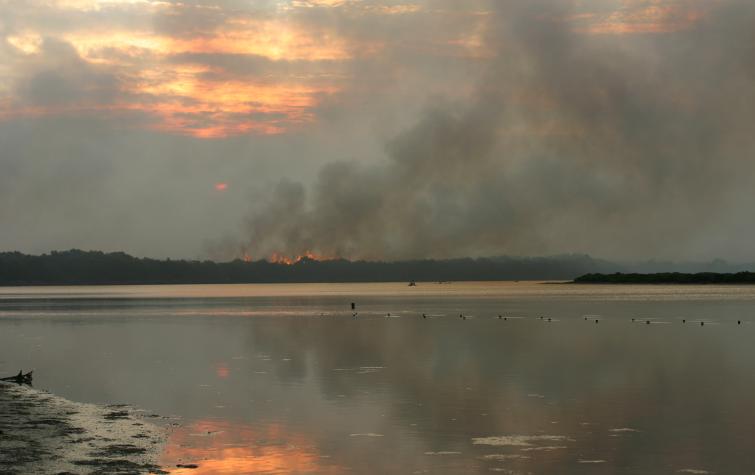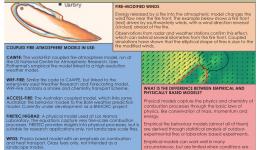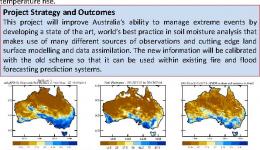Lead end user
This project is using high-resolution modelling, together with a range of meteorological data, to better understand and predict important meteorological natural hazards, including fire weather, tropical cyclones, severe thunderstorms and heavy rainfall. The outcomes from the project will contribute to reducing the impact and cost of these hazards on people, infrastructure, the economy and the environment.
Research team:
This project examined the use of detailed land surface models, satellite measurements and ground-based observations for the monitoring and prediction of landscape dryness. The research team developed a standalone prototype land surface modelling system, called Joint UK Land Environment Simulator based Australian Soil Moisture Information (JASMIN) to produce daily soil moisture analyses at 5km resolution and 4 soil layers. Verification against ground-based soil moisture observations shows that this prototype system is significantly more skilful than both the Keetch–Byram Drought Index and Soil Dryness Index. This project also aimed to improve applications such as fire danger mapping that may require soil moisture information at higher spatial resolution due to the large spatial variability of soil moisture in the landscape, and developed a simple yet skilful model to predict live fuel moisture content for the whole of Australia.
Research team:
The project aimed to improve understanding of fire and atmosphere interactions and feedback processes through running the coupled fire-atmosphere model ACCESS-Fire. ACCESS-Fire is an important research tool and has the potential to be a critical operational tool. It will assist in informing fire management decisions as increasingly hazardous scenarios are faced in a changing climate. Further deliverables from the project include the preparation of meteorological and simulation case studies of significant fire events as publications, installation and testing of the ACCESS-Fire coupled model on the National Computing Infrastructure; and preparation of training material to support operational implementation of research findings. The project has demonstrably achieved the objective of building and sharing national capability in fire research and has provided fire and meteorology expertise during high impact events in support of end-users inside their operational centres.
This project is part of the Black Summer research program funded by the Commonwealth Government through the 10-year extension of funding into natural hazard research in Australia.
Research team:
This project is part of the Black Summer research program funded by the Commonwealth Government through the 10-year extension of funding into natural hazard research in Australia.
27 Aug 2019
Coupled models are a class of fire prediction models that combine fire and atmospheric components....
25 Aug 2014
This project will improve Australia’s ability to manage extreme events by developing a state of the...
Resources credited
| Type | Released | Title | Download | Key Topics |
|---|---|---|---|---|
| Presentation-Slideshow | 07 Jul 2017 | Building bushfire predictive services capability |
|
fire, fire weather, modelling |
| Presentation-Slideshow | 08 Sep 2014 | Managing severe weather - progress and opportunities |
|
|
| Presentation-Slideshow | 07 Aug 2014 | Fire Weather Research and Development |
|
fire weather, governance |







